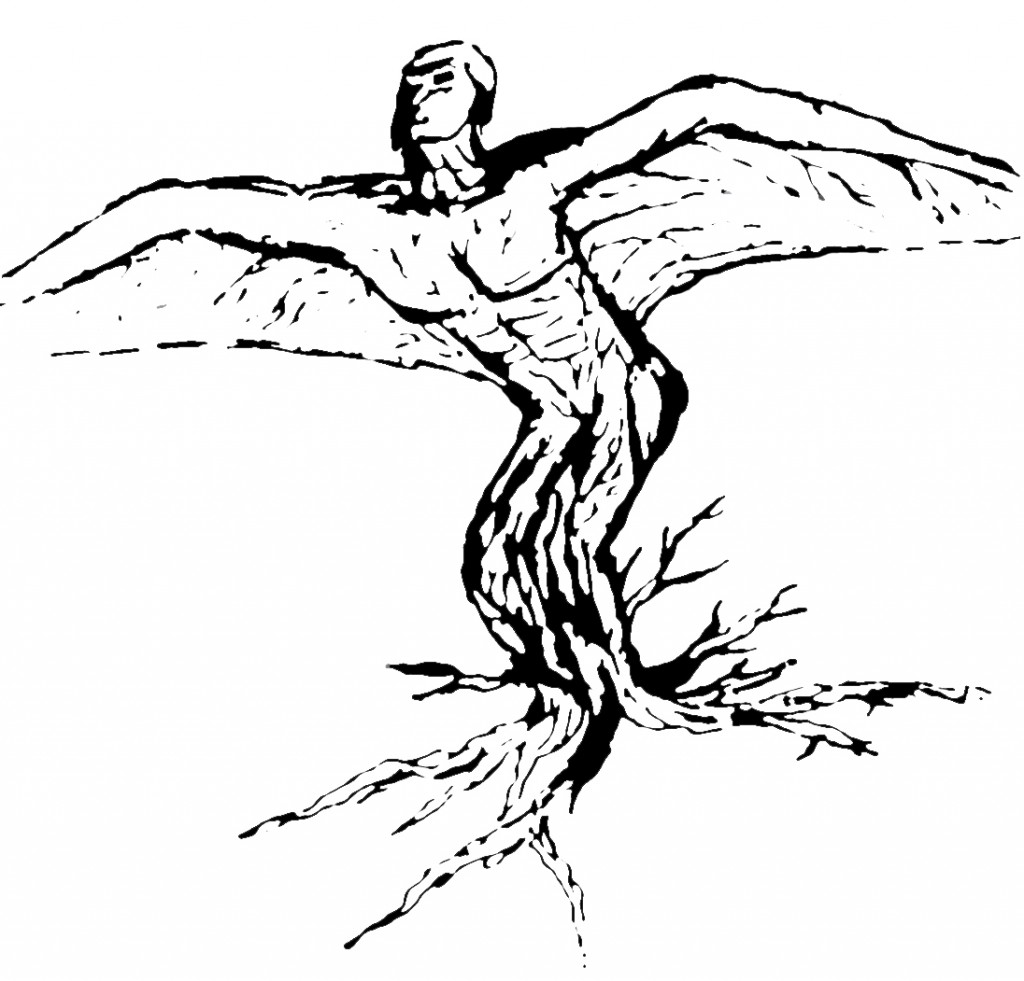Polarity – an embodiment of the human condition
People are generally good. If you look at all the bad stuff in the world you may conclude the opposite but looking at all the bad misses the point. To make a general statement you have to look at all of the data and make an assessment on the majority. When you look at all people and all actions; every opportunity for good and bad, it is hard to conclude that people are anything but generally good. Human nature is a dichotomy of all that is good and bad, with the majority leaning good most of the time.
The sculpture is called “Polarity” because human nature is all that is good and all that is bad – and everything in between. The roots represent the bad – that which holds humanity from achieving its best. The wings represent the good – that which propels humanity forward, to be the best we can be. The ultimate hope is that we can break free from our roots (namely ignorance and fear) and continue to move forward in a positive way (through knowledge, understanding, and hope) The sculpture has a break in the roots….it is the result of a lot of will and determination to improve our condition.
While evil does exist and there are people with little to no empathetic response, most of the bad in the world is caused by ignorance and fear, which leads to seemingly malicious results with the absence of malice as its cause (the banality of evil). Knowledge and understand are critical to combat ignorance and fear.
“Sunlight is the best disinfectant” – Louis Brandeis. Louis Brandeis made this comment with regards to transparency, but it can be generalized to knowledge and understanding as a luminary force. The more you understand about the world around you, the more of a beacon of light you become. As an individual, if you can break free of ignorance and fear, you can really soar! Imagine if we as a society or as a world could break free of ignorance and fear?!
Russell Ackoff, liked the concept of “omni-competent” (he may have coined the term?) and he saw ethics through the lens of competency; one of his life’s pursuit as a systems thinker. I was fortunate to interview him once and I asked him about his thoughts on ethics. At first he answered, “I have no thoughts on ethics”… an odd answer considering I felt he had cracked the code on how to best organize social groups with core ethical principles as the foundation for the organization (see “Re-creating the Corporation”). Upon being pressed, he responded rather esoterically that ethics to him was a function of the allowance or constraint of ones freedom to pursue greater competency. The only way to understand what he meant by that was to look at the world through his eyes, and to fully understand his views on “omni-competence”.
While his views on ethics were hard to understand, his ideas on social structures were easier to understand and implement. If corporations, governments, and other social institutions embraced Ackoff’s systems models of organizing people, we would have far more ethical societies by design. Ackoff’s models help to reduce the amount of “friction” that current social models create, by the nature of the fact that the current approximations of reality do not match up well with how things ought to work. Ackoff’s models do a better job of modeling reality, taking into account the fact that social systems are made up of people, with their own intentions and needs. Ackoff was one of those rare few that gave us wings.
The world is currently stalled in a long paradigm shift. Societies are mostly post religious (non-theoctratic) and the world has increasingly been marching towards greater unity; albeit painfully and not in a straight path.
Ethics provides the universal foundation for agreement between cultures that would help us complete the paradigm shift. Due to cultural influences and a general lack of understanding of Ethics, our paradigm shift is stalled. When there is a void, bad things can happen.
What we need to complete the current paradigm shift is to form a world culture that understands Ethics and places ethics at the core foundation of its institutions (religious, governmental, business, etc). This is not only desirable, it is doable and necessary.

I can agree with you but of course this isnt the case… another thing: what would everyone do if I had 2 billion dollars?
Please be more specific. You first statement is contradictory. The second statement does not seem to represent an ethical condition; please elaborate.